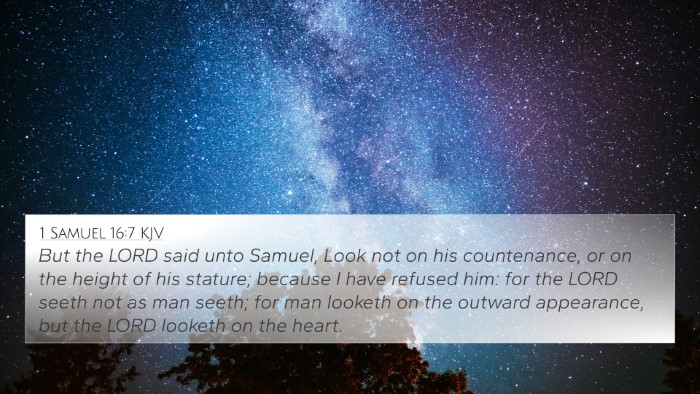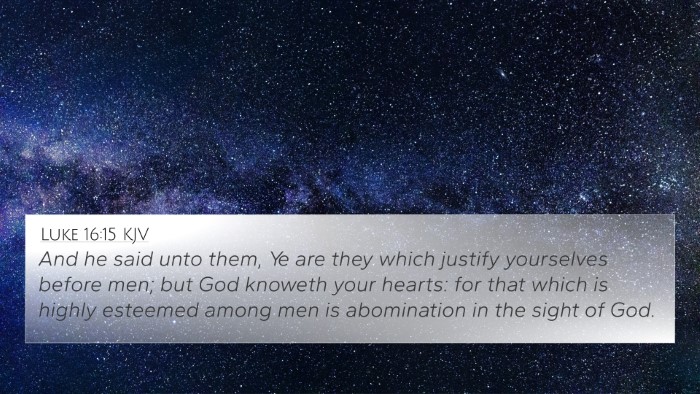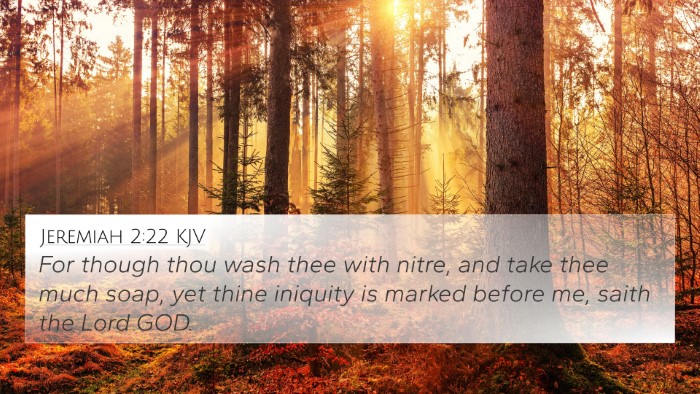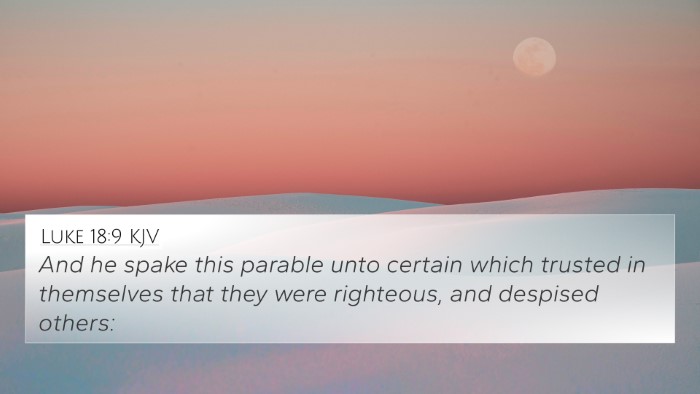Understanding Proverbs 16:2
Proverbs 16:2: "All the ways of a man are clean in his own eyes; but the LORD weigheth the spirits."
Verse Meaning
Proverbs 16:2 delves into the nature of human perception and divine judgment. Matthew Henry emphasizes that individuals often believe their actions to be righteous due to self-justification. This reflects our tendency to see ourselves positively while overlooking faults.
Albert Barnes elaborates on the significance of "the LORD weigheth the spirits," indicating that God possesses a perfect understanding of our motives and intentions. Unlike human evaluations, which can be clouded by bias, God's judgment is impartial and true.
Adam Clarke notes the contrast between human evaluation and divine scrutiny. While a man may consider his path to be right, it is ultimately the LORD who assesses the deeper motivations behind those actions. Ultimately, the verse is a reminder of the importance of seeking divine guidance and wisdom.
Related Bible Cross-References
- Proverbs 21:2: “Every way of a man is right in his own eyes: but the Lord pondereth the hearts.”
- Jeremiah 17:9: “The heart is deceitful above all things, and desperately wicked: who can know it?”
- Psalms 139:1-2: “O Lord, thou hast searched me, and known me. Thou knowest my downsitting and mine uprising, thou understandest my thought afar off.”
- James 4:10: “Humble yourselves in the sight of the Lord, and he shall lift you up.”
- Romans 14:12: “So then every one of us shall give account of himself to God.”
- Proverbs 3:5-6: “Trust in the Lord with all thine heart; and lean not unto thine own understanding. In all thy ways acknowledge him, and he shall direct thy paths.”
- Matthew 7:1-2: “Judge not, that ye be not judged. For with what judgment ye judge, ye shall be judged…”
Comparative Bible Verse Analysis
The connections between Bible verses often reveal a cohesive and profound understanding of God's will. In Proverbs 21:2, the echo of self-righteousness is noted; both verses underscore how humans can misinterpret their own paths.
In contrasting these insights with Jeremiah 17:9, we find a deeper exploration of human nature and the inherent deceit of the heart. This theme resonates throughout scripture, encouraging believers to examine their hearts regularly.
Furthermore, the assurance found in Psalms 139:1-2 emphasizes God's omniscience, complementing Proverbs 16:2 by illustrating how God knows our innermost thoughts, thus reinforcing our need for humility (James 4:10).
Thematic Bible Verse Connections
The themes explored in Proverbs 16:2 create a rich tapestry when linked with other scriptural passages. These connections not only highlight the moral and ethical teachings in the Bible but also showcase the profound conversations happening across different books of the Bible.
-
Self-Deception vs. Divine Insight: The repeated warning against self-perception is crucial in understanding biblical wisdom. This theme appears in Matthew 7:1-2, which cautions against judgment made in ignorance.
-
Trust and Acknowledgment: Proverbs 3:5-6 beautifully complements the trust one should place in God over one’s own understanding, enhancing the understanding of the importance of spiritual guidance.
How to Utilize Bible Cross-Referencing
Cross-referencing Bible texts is a powerful method for deepening one’s understanding of scripture. Tools such as a Bible concordance or a cross-reference Bible study guide can facilitate the connection between verses.
When studying Proverbs 16:2, consider using a comprehensive Bible cross-reference system to explore linked verses. This can illuminate how different teachings interact and reinforce one another.
Conclusion
Proverbs 16:2 serves as a vital reminder of the need to seek God’s perspective on our ways. As we cross-reference related scriptures, we deepen our understanding and appreciation of God's wisdom, recognizing the intricate dialogues between various parts of the Bible.
In doing so, we not only grasp the individual verse's meaning but also appreciate the rich, interconnected fabric of scriptural truths that guide us in our walk of faith.



















